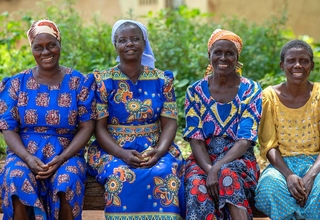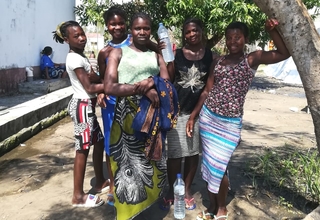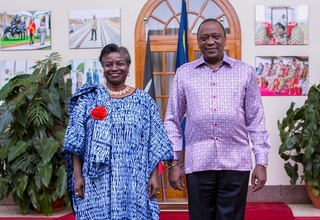LUSAKA, Zambia – Africa has made significant strides towards realizing the vision of the landmark International Conference on Population and Development (ICPD) for a continent that puts individual dignity and human rights at the centre of development.
We need to recommit to the breakthrough solutions and momentum needed to accelerate actions and change course where needed.

“The ICPD agenda remains relevant for the African continent. We need to recommit to the breakthrough solutions and momentum needed to accelerate actions and change course where needed,” said Diene Keita, UNFPA’s Deputy Executive Director, Programmes.
She was speaking at the Addis Ababa Declaration on Population and Development (AADPD) 10-year review in Lusaka, Zambia from 7–10 November. This took stock of progress and put forth recommendations to address challenges towards realising the ‘Africa We Want’.
Mutale W.K. Nalumango, Zambia’s Vice President, reaffirmed the significant progress made on the continent. “Our unwavering commitment and resilience will pave the way for a more inclusive and prosperous future for our continent,” she said.
The meeting was convened at a time of global uncertainties and challenges, said Ambassador Minata Samaté Cessouma, Commissioner for the Department of Health Humanitarian Affairs and Social Development of the African Union Commission. “The impact of conflict on people’s lives in societal progress and cohesion, and continuity of life, services and connections, speaks volumes to the kind of actions we must all avoid if this world is to move forward in a manner that is cohesive, guided by multilateralism and builds on our differences but more importantly, the qualities we share.”
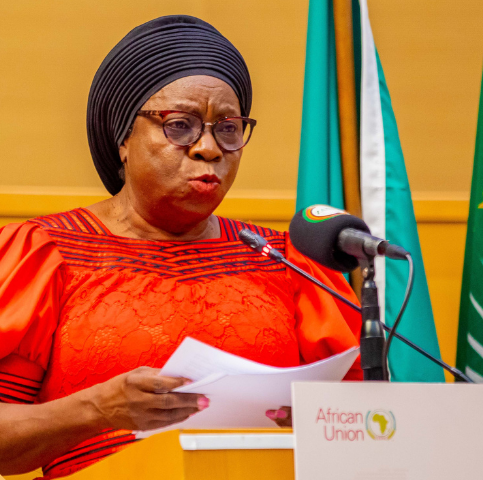
The event was hosted by the Government of the Republic of Zambia and the African Union Commission, with the support of UNFPA and the United Nations Economic Commission for Africa.
"We are part of a vibrant and young continent, with 42 per cent of the population below the age of 15. The ICPD agenda has never been more relevant and more urgent,” said Seth Broekman, UNFPA Representative for Zambia.
Celebrating achievements
While key achievements toward the ICPD Programme of Action (PoA) are celebrated in Africa, there are emerging challenges and opportunities for acceleration. Population dynamics remain central in accelerating efforts towards achieving sustainable development.
Member States must continue to advance people-centred monitoring, accountability and enforcement mechanisms to ensure Africa Leaves No One Behind in sustainable development. Implementation of inclusive legislation, policies and programmes that guarantee rights and choices for all needs to be scaled up.
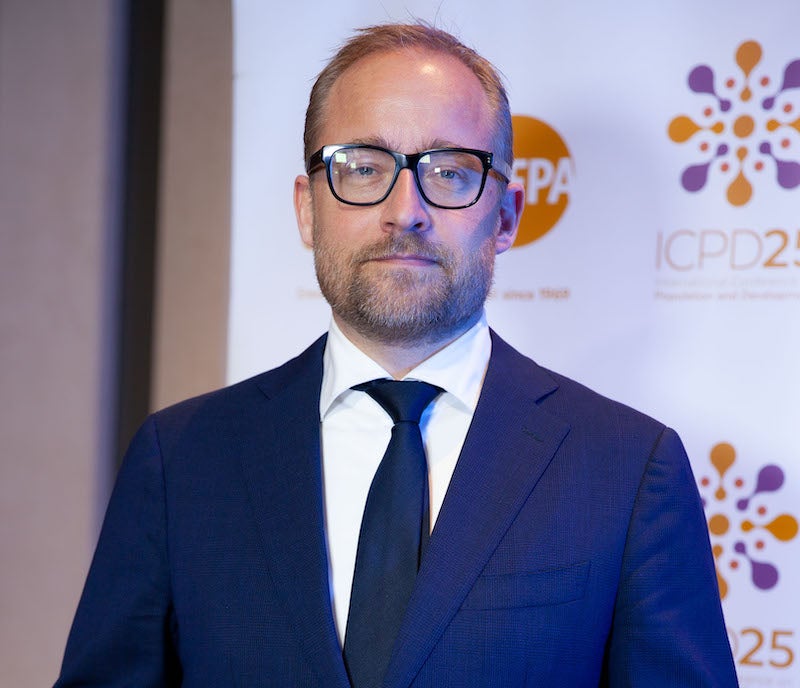
In spite of this progress, urgent unfinished business remains. Progress has been vastly unequal and slow. The continent needs to scale up collective action to achieve the inclusive, equitable and sustainable vision of ICPD and the Africa We Want.
Politics and populations have never been more diverse, yet more unites the continent than divides it. African nations must stand together, champion common values and embrace their shared potential in translating political commitment on the ICPD into reality.
Renewed commitment
The AADPD was adopted in 2013 by African Ministers at the Regional Conference on Population and Development, and represents Africa’s renewed commitment to advance the ICPD agenda in Africa.
The African Population Experts Committee met from 7-8 November to take stock of progress since the 5-year review of the AADPD, identify best practices that have advanced the implementation of the ICPD PoA, and put forth recommendations for each pillar of the AADPD based on the findings of national review reports.

Thereafter, a meeting of the Ministers in Charge of Population was held from 9–10 November to consider the report and recommendations of the AADPD+10. The meeting underscored the importance of identifying a common position at CPD for the 30-year anniversary of ICPD, including the importance of addressing the urgent unfilled vision of the ICPD.
The findings of the review will be submitted to the 57th Session of the CPD in 2024, as Africa's contribution to the global review of the ICPD30.
The continent remains committed to full implementation of the ICPD Programme of Action through the Addis Ababa Declaration on Population and Development (AADPD), aligned with the aspirations and goals of Agenda 2063, which is Africa's development blueprint to achieve inclusive and sustainable socio-economic development over a 50-year period.
About the ICPD
Held in Cairo in 1994, the International Conference on Population and Development (ICPD) transformed global thinking on population and development issues and defined a bold agenda, placing people’s dignity and rights at the heart of sustainable development. It affirmed that inclusive sustainable development is not possible without prioritizing human rights including reproductive rights, empowering women and girls, and addressing inequalities as well as the needs, aspirations and rights of individual women and men. At the event, 179 governments adopted the ICPD Programme of Action


